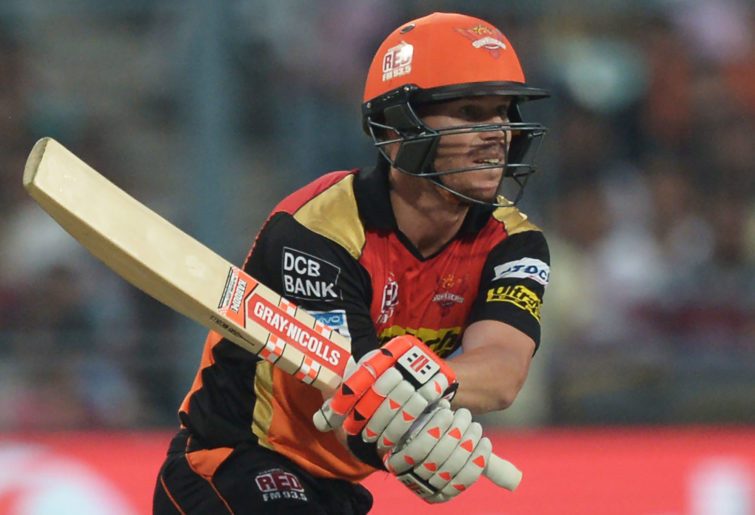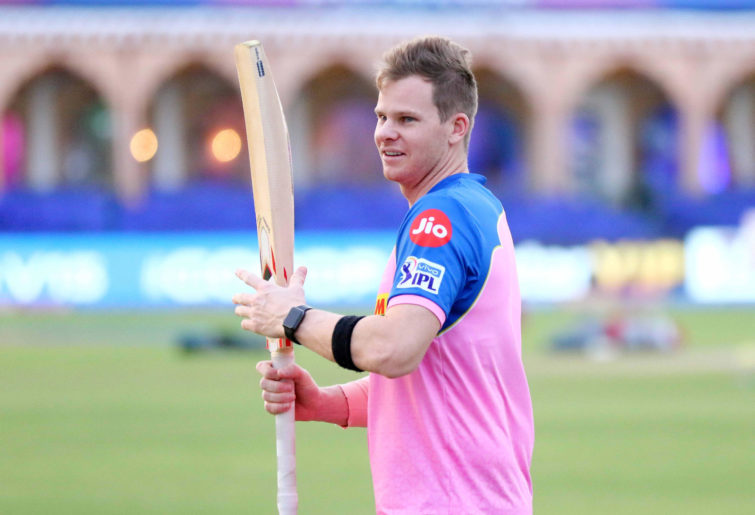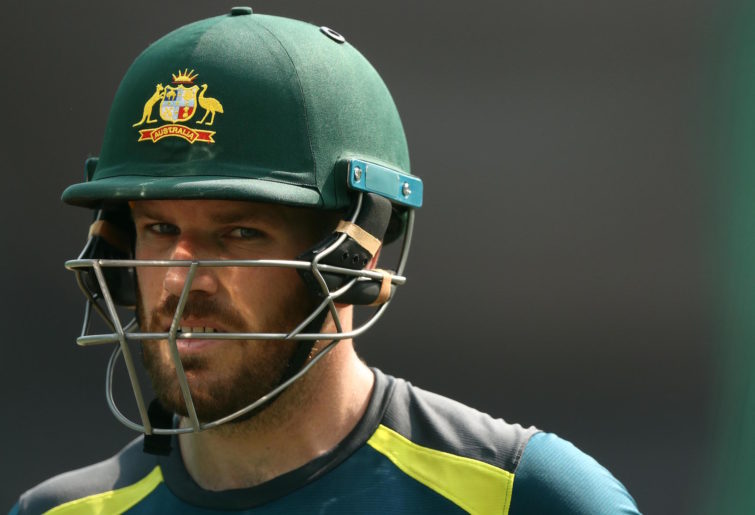The possibiliy of Jofra Archer's career coming to an early end will rob cricket of a bowler with so much talent
While a premature retirement isn’t the solution, he or England want, he may be forced into it if he can’t maintain a long run of matches.
Opinion
Since the IPL’s inception in 2008, Australians have been an important feature of the Indian Premier League (IPL) teams.
In six of the 13 completed seasons, an Australian has won the orange cap for the tournament, scoring the maximum amount of runs (David Warner winning it thrice), and in 2018, paceman Andrew Tye won the purple cap for being the highest wicket taker for the season.
The Indian cricket fans love them, and the Australian cricketers add more quality to the league.
In 2020 IPL, 19 Australians featured across the eight franchises.
The following is a list of the top ten Australian players at 2020 IPL.
1. Marcus Stoinis (Delhi Capitals)
Matches: 17, runs: 352, batting average: 25.14, strike rate: 148.52, high score: 65, wickets: 13, bowling average: 21.76, economy rate: 9.53, best bowling: 3-26
In what was his breakout IPL season, all-rounder Marcus Stoinis was the best performing Australian.
He achieved a rare feat of 350-plus runs, with three 50s, and ten-plus wickets at an average of under 22.
He was one of the most important parts of the Ricky Ponting-coached Delhi Capitals, as they reached their first ever final.
He was involved in several of the Capitals’ victories, but most impressive was his man-of-the-match performance against the Sunrisers Hyderabad, in a qualifier to the final.
He scored 38 off 27 balls as he opened the innings for the first time in the tournament. He also took three wickets, including two in the same over, dismissing Manish Pandey and Priyam Garg. Later in the innings, he got the all important wicket of Kane Williamson, who had brought the Sunrisers close to an unlikely win.
Stoinis is set to feature for the Melbourne Stars at the upcoming Big Bash League. His performances can go a long way to cementing Stoinis’ role as a staple in Australia’s T20I side.
2. David Warner (Sunrisers Hyderabad)
Matches: 16, runs: 548, batting average: 39.14, strike rate: 134.64, high score: 85*
For a very large part of the tournament, David Warner wasn’t able to perform to his potential. However, towards the end of the league stage, he changed gears.
The most prolific batsman in IPL history, he finished as the third highest run-scorer of the season, with 548 runs, just behind KL Rahul and Shikhar Dhawan.
He led Sunrisers Hyderabad from the front into the knockouts. However, he flunked then, scoring 19 runs in two innings, scoring 17 against Virat Kohli’s Royal Challengers Bangalore and two against the Capitals.
Warner couldn’t take his team to glory in the IPL but Australian cricket fans will hope that he can maintain his form as India’s tour looms.

(Dibyangshu Sarkar/AFP/Getty Images)
3. James Pattinson (Mumbai Indians)
Matches: ten, wickets: 11, bowling average: 29.09, economy rate: 9.01, best bowling: 2-19
In an alternate universe, James Pattinson would be sitting in Victoria, enjoying the IPL on TV and getting prepared for the upcoming Big Bash League, where he will play for the Melbourne Renegades.
He was picked by the Mumbai Indians after Lasith Malinga pulled out for the season, and he joined the side, expecting to feature at some point.
A side strain to Nathan Coulter-Nile brought him into Mumbai’s playing XI, and Pattinson hasn’t looked back. He took 11 wickets in ten league matches, and formed a solid pace attack alongside Trent Boult and Jasprit Bumrah.
He was entrusted even after Nathan Coulter-Nile got fit and played ten times in the season, taking 11 wickets, at an economy of just over nine.
His figures may be decent, but Pattinson’s skills with the new ball let his captain Rohit Sharma utilise Bumrah to better effect.
He found himself replaced for the all-round abilities of Coulter-Nile towards the business end of the season, but his exploits have made him a household name among Indian cricket fans.
Melbourne Renegades fans should be excited to have him for the upcoming season of the Big Bash League. If he can follow his IPL performance with a solid BBL season, he may find himself in contention for the Australian T20I side.
4. Shane Watson (Chennai Superkings)
Matches: 11, runs: 299, batting average: 29.90, strike rate: 121.05, high score: 83*
Shane Watson started the season slowly, but picked up some sort for form as it progressed.
In his last seven innings, he registered four 30-plus scores, and even fetched one man-of-the-match award for his unbeaten 83 against the Kings XI Punjab.
The MS Dhoni-led Chennai Superkings had a season to forget, finishing out of the top four for the first time in the league stage. Their batting, in the absence of Suresh Raina, floundered time and again.
Watson finished as their third highest scorer, behind Faf Du Plessis and Ambati Rayudu for the season. Watson announced his retirement from all forms of competitive cricket after CSK’s campaign ended.
However, even at the age of 39, Watson was one of the most elegant drivers in the world. When he hit them, there was no stopping them.
5. Pat Cummins (Kolkata Knight Riders)
Matches: 14, wickets: 12, bowling average: 34.08, economy rate: 7.86, best bowling: 4-34, runs: 146, batting average: 20.85, strike rate: 128.07, high score: 53*
Pat Cummins couldn’t match the expectations that were put on him coming into the tournament. In last year’s auction, Cummins became the most expensive overseas player of all time in the IPL.
He was signed by the Knight Riders for a staggering figure of $3.17 million with a hope of leading them to glory. With two wickets in the first eight games, a few touted Cummins as one of the most expensive mistakes of all time in IPL history. However, he salvaged the season somewhat with ten wickets in the next six games.
He shone in the Knight Riders’ must-win match against the Rajasthan Royals, taking four wickets for 34 runs, including Robin Utthappa, Ben Stokes and Steve Smith. Incidentally, he conceded 19 of those 34 in the first five balls.
Cummins was more than handy with the bat, scoring 146 runs at an average of around 21. He even scored a 50. His tally exceeded Chris Morris, Kedar Jadhav, Andre Russell and compatriots Glenn Maxwell and Alex Carey.
Eventually, his performance proved futile as the Knight Riders couldn’t qualify for the knockouts. The Knight Riders would hope that Cummins can contribute more to them in the next IPL season.
6. Steve Smith (Rajasthan Royals)
Matches: 14, runs: 311, batting average: 25.91, strike rate: 131.22, high score: 69
Steve Smith had a mixed bag of an IPL.

(Photo by Vishal Bhatnagar/NurPhoto via Getty Images)
He started the tournament strongly with two 50s. They were followed by five single-digit scores in six innings. He followed the slump with another 50 and a couple of 20-plus scores.
Smith’s inconsistency was strikingly similar to the Royals’ wavering fortunes in the tournament. Questions have been asked about his spot in the side and he needs to come up with better returns in the tournament’s next edition, which is likely to happen after six months.
Smith finished the tournament as the 22nd highest scorer, just after Jos Buttler and above Watson. Australian cricket fans will hope for an up turn in Smith’s form as they are set to host India later this month.
7. Nathan Coulter-Nile (Mumbai Indians)
Matches: seven, wickets: five, bowling average: 41.20, economy rate: 7.92, best bowling: 2-29, runs: 24, batting average: 25.00, strike rate: 166.66, high score: 24*
Much was expected before the IPL began as the Mumbai Indians had acquired Nathan Coulter-Nile for $1.63 million for his all-rounder abilities.
With Lasith Malinga withdrawing before the tournament, Coulter-Nile was expected to start for Mumbai Indians. A side strain ruled him out for the opening match, and doors were opened for Pattinson.
He played his first match against the Kolkata Knight Riders, going for 51 in his four overs. He seemed rusty for the first couple of games but eventually settled down well.
In his last five matches, he went at around seven runs per over, and took four wickets. It included 0-27 in four overs against the Delhi Capitals in the qualifying final, and 2-29 against the same opposition in the IPL final, where the Mumbai Indians triumphed convincingly.
Coulter-Nile is set to play for the Melbourne Stars in the upcoming edition of the BBL. His franchise will hope that he can carry his IPL form and come in handy as the Stars target their first ever BBL trophy.
8. Aaron Finch (Royal Challengers Bangalore)
Matches: 12, runs: 268, batting average: 22.33, strike rate: 111.20, high score: 52
Australia’s limited-overs captain Aaron Finch had a disappointing season. One of the highest scorers in the history of the format, Finch couldn’t get going this season.
Australia’s limited-overs captain was outscored by his opening partner, youngster Devdutt Padikkal, and found himself replaced by compatriot Josh Philippe.
He came back for the knockout game against David Warner’s Sunrisers Hyderabad. He batted at number three and scored a promising knock of 32, before being dismissed by Shahbaz Nadeem.
In the season, Finch got several other starts, but couldn’t covert them into big scores, with two single-digit scores, a solitary 50 and a 47.

(Robert Cianflone/Getty Images)
9. Josh Philippe (Royal Challengers Bangalore)
Matches: five, runs: 78, batting average: 19.50, strike rate: 101.29, high score: 33
Those who follow the BBL are aware of the talent Josh Philippe possesses. Indian cricket fans saw him for the first time in the IPL as he replaced his compatriot Aaron Finch for three games as an opener.
Earlier in the season, he had batted in the middle order, but was promoted for the last three league games and produced handy results. In fact, 77 of his 78 runs came at the top while partnering Padikkal.
For their all-important knockout game against the Hyderabad side, Philippe was replaced by Finch. Philippe could not get enough games to impress in the tournament, but his performances were applauded by cricket fans.
10. Glenn Maxwell (Kings XI Punjab)
Matches: 13, runs: 108, batting average: 15.42, strike rate: 101.88, high score: 32, wickets: three, bowling average: 56.33, economy rate: 8.04, best bowling: 1-10
One of the most expensive buys of the last auction for $2.19 million, Glenn Maxwell was expected to be one of the stars of the tournament.
He was coming off a man-of-the-series performance in the ODI series in England, and Kings XI Punjab hoped he could be a game-changer.
A few weeks later, Maxwell finished the tournament as one of the biggest disappointments of the tournament. For a player with a career T20 strike rate of over 150, Maxwell scored at under 102, couldn’t even score 110 runs and hit just nine boundaries in the entire tournament, without a six.
Punjab, with all the brilliance of KL Rahul, Mayank Agarwal, Chris Gayle and Mohammed Shami, got knocked out in the league stages and Maxwell was one of the biggest duds.
Even with the ball, he got a mere three wickets, at an average of over 50 and economy rate of just over eight.
Maxwell hasn’t performed well in the recent seasons of the tournament, but every year, he is one of the most sought-after players at the auction.
He needs to perform more consistently to get another hefty payday in the Indian Premier League.
Apart from these ten, the other Australians who got game time were Adam Zampa (three matches), Alex Carey (three matches), Chris Green (one match), Daniel Sams (three matches) and Andrew Tye (one match).
Chris Lynn (Mumbai Indians) and Billy Stanlake (Sunrisers Hyderabad) didn’t appear in any matches.
All-rounder Mitchell Marsh (Sunrisers Hyderabad) got ruled out of the tournament after suffering an ankle injury in the first match of the season.